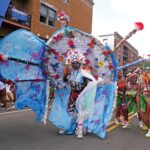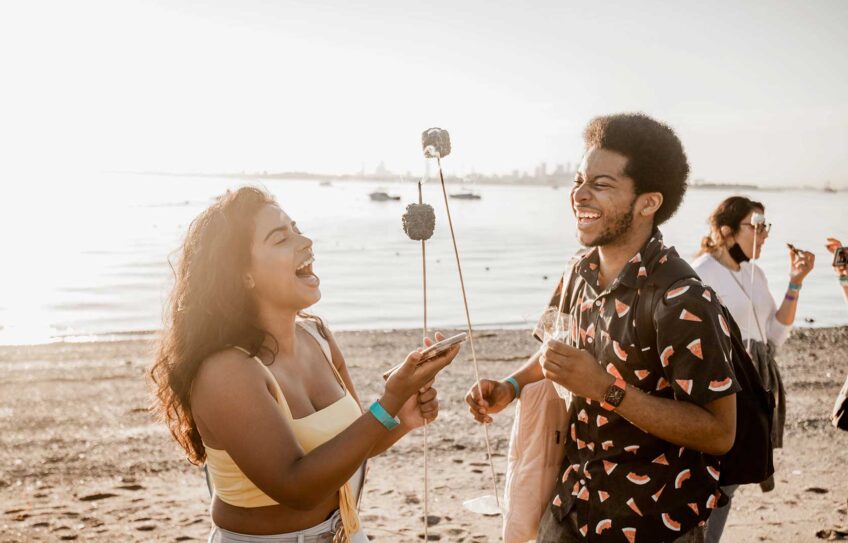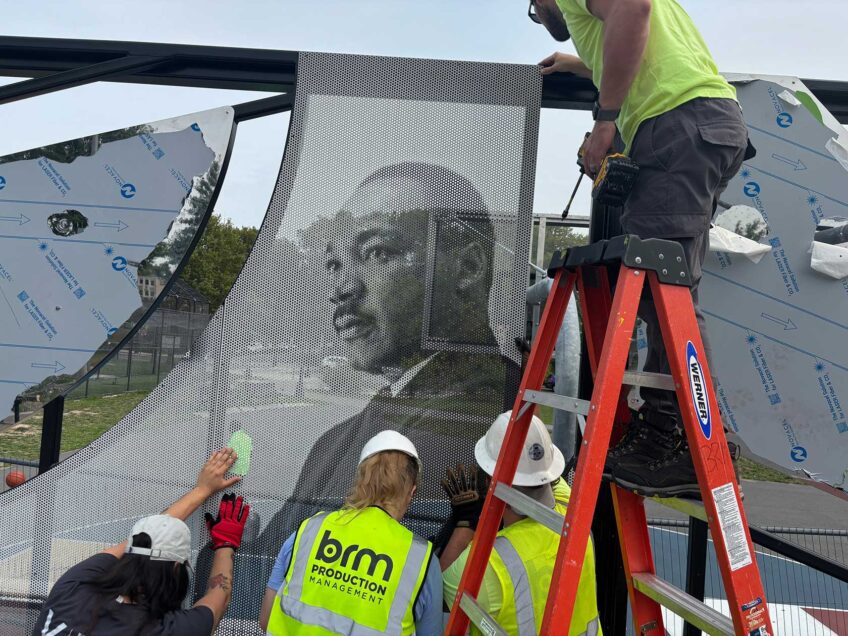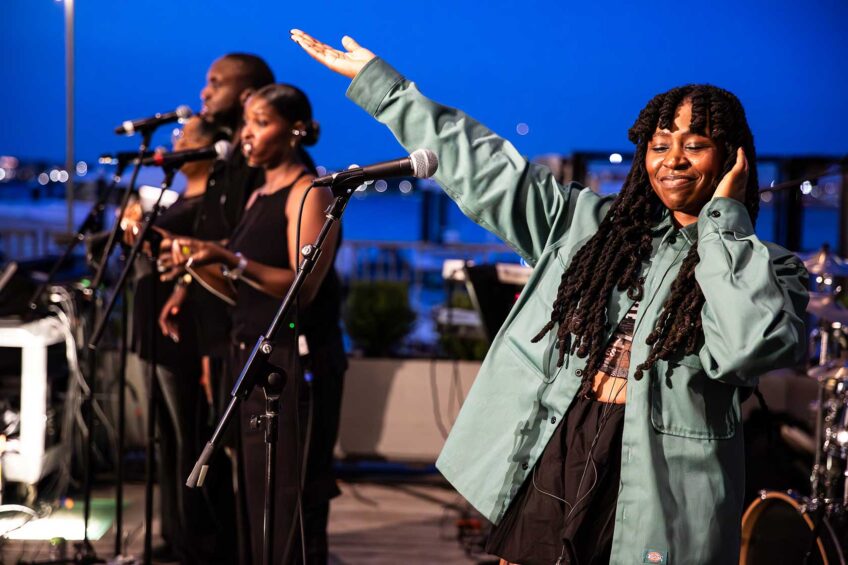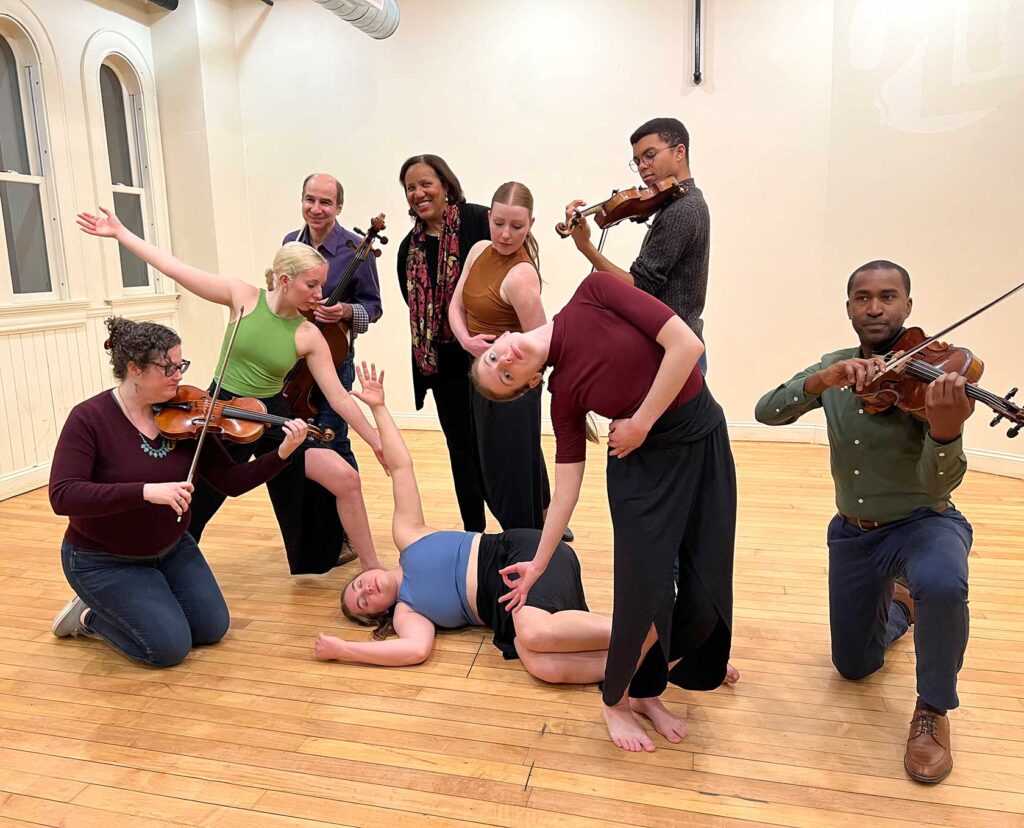
On a recent evening, the jolting sounds of string instruments filled a room that was half dance studio, half gym. A quartet stood in the center of a mat-covered section of the space, each member stationed behind a music stand. Three dancers circled the ensemble, cycling through a series of turns and leaps and kicks, accompanied by the colliding notes of one cello, two violins and one viola — an unusual sight for a classical music performance, yet still engrossing.
“I always want [when] people experience a concert to do just that — really experience it all the ways, through their bodies,” said Betsy Hinkle, one of the violinists and the founder of the Boston Public Quartet, in an interview. “I want them to feel like they’re a part of it, that it was made for them.”
This is the feeling the Boston Public Quartet hopes to evoke during “A Radical Welcome,” a multisensory music experience that aims to subvert the concept of what a classical music concert can and should be. The concert, to be held on April 19 at the Strand Theatre, will put an unexpected twist on the genre by incorporating light projections, West African drumming, choreography by Liana C. Percoco and audience participation.
“A Radical Welcome” is also the overarching title for a series of other events the Boston Public Quartet hopes to curate, all with the mission of amplifying historically excluded voices in classical music.
“We’re trying to expand where classical music is performed [and] who identifies as being a fan of classical music,” said Hinkle. “Because we feel like whenever people listen to what we’re playing, basically everyone finds it quite enjoyable. I think it’s just a matter of exposure [and] access.”
Hinkle founded the group in 2007 as the resident ensemble of Roslindale-based education nonprofit musiConnects, also established by Hinkle. During its time with musiConnects, the Boston Public Quartet played in traditional and unique concert venues and served as the inaugural ensemble of the Celebrity Series of Boston’s Neighborhood Arts project. In 2021, the Boston Public Quartet relaunched as a standalone ensemble, funded through grants and service fees.
Members have revolved in and out of the group in its 17-year history. Currently, the quartet comprises core members Hinkle, Grant Houston, Jason Amos and Joy Cline Phinney, along with guest cellist Emmanuel Feldman, all collaborating to make classical music more accessible.
The ensemble achieves this in part by teaching classical music in areas with populations that historically have been excluded from the genre, Hinkle said.
“Even though we’re no longer under an umbrella of an educational organization, we all are wholeheartedly dedicated to educating the next generation of musicians, artists [and] composers,” Hinkle said.
Equally important to the ensemble is diversifying the musicians it partners with and the composers whose work it performs. “A Radical Welcome,” for example, will feature a repertoire by Black composers.
The concert experience, Hinkle said, ideally will elicit questions in the audience members’ minds — questions about, among other things, how the pieces were composed, how the pieces can be improved, and why certain instruments were used.
In the rehearsal space, the music and corresponding choreography felt slightly off-kilter. They were supposed to, Percoco, the choreographer, said. The piece the dancers were moving to, called “On the Impulse to Move,” by composer Lavell Blackwell, is about the struggle of meditating, evident in the push and pull the dancers engaged in, symbolic of an attempt — and a failure — to quiet the mind. Amidst the agita invoked by the discomfiting notes of the strings, the dancers searched for tranquility.
The piece, Percoco said, is an opportunity for spectators to ask themselves, “How can we help each other find a moment of stillness?”

